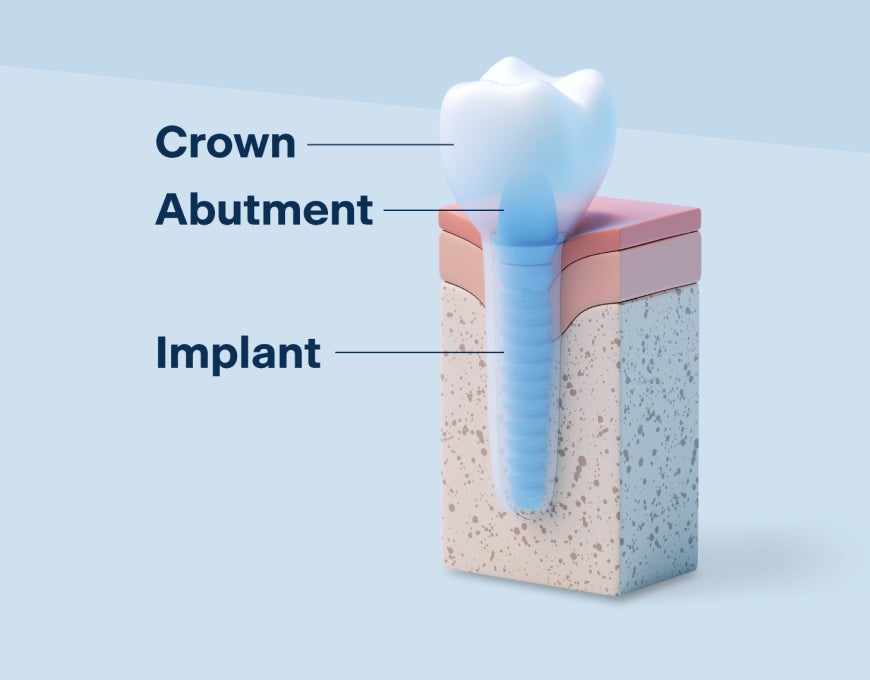Can I Get Dental Implants if I Have Other Health Conditions?
Can health conditions affect dental implants? Explore safety, risks, and implant options for various medical situations.

This article will explore how different health conditions can affect the ability to get dental implants, and how you can still achieve a confident smile.
Can I Get Dental Implants if I Have Other Health Conditions?
Understanding Dental Implants
Dental implants serve as artificial tooth roots, providing a strong foundation for fixed or removable replacement teeth. They look, feel, and function like your natural teeth.
General Considerations for Health Conditions
Before getting dental implants, communicate any health conditions with your dental team. They’ll tailor the treatment plan to your specific needs, ensuring the best possible outcome.

Dental Implants and Specific Health Conditions
Dental Implants and Lupus
Impact of Lupus on Dental Implants
Lupus is an autoimmune disease that can affect healing, which is crucial for implant success.
Precautions and Considerations for Lupus Patients
Discuss the impact of lupus with both your dental provider and your general doctor. They will take necessary precautions to manage your condition during the implant process.
Dental Implants and Rheumatoid Arthritis
Impact of Rheumatoid Arthritis on Dental Implants
Rheumatoid arthritis can affect jawbone density and overall oral health, which can influence implant success.
Precautions and Considerations for Rheumatoid Arthritis Patients
Work closely with your healthcare team to manage inflammation and ensure a healthy setting for your implants.
Dental Implants and Diabetes
Impact of Diabetes on Dental Implants
Diabetes can slow down the healing process, which is key for dental implant integration.
Precautions and Considerations for Diabetes Patients
Keep your blood sugar levels under control and coordinate with your healthcare providers for the best results.
Dental Implants and Osteoporosis
Impact of Osteoporosis on Dental Implants
Osteoporosis affects bone density, which can impact the stability and success of dental implants.
Precautions and Considerations for Osteoporosis Patients
Your healthcare providers will evaluate your bone health and strategize a plan that addresses any associated risks.
Dental Implants and Gum Disease
Impact of Gum Disease on Dental Implants
Gum disease can compromise the foundation needed for dental implants to thrive.
Precautions and Considerations for Gum Disease Patients
Treat any existing gum disease and maintain excellent oral hygiene to support the long-term success of your implants.

Consultation and Treatment Planning
Importance of Medical and Dental History Review
A thorough review of your medical and dental history is essential for creating a personalized and effective treatment plan.
Coordinating with Healthcare Providers
Collaborate with both your dental and healthcare providers to ensure all your health conditions are managed throughout the implant process.
Success Factors and Recovery
Factors Impacting the Success of Dental Implants
Several factors contribute to the success of dental implants, including bone health, oral hygiene, and overall health condition management.
Tips for a Smooth Recovery Process
Follow these tips for a smooth recovery:
Maintain good oral hygiene.
Follow your dental provider’s post-surgery care instructions.
Regularly visit your dental provider for check-ups.
Customization at ClearChoice
Dental implants are a viable option for many, even with various health conditions. That’s why ClearChoice personalizes your treatment planning to ensure your specific needs are met.
See if Dental Implants Are Right for You
Don't wait any longer to restore your smile. Schedule a free consultation at ClearChoice to take the first step towards a more confident, healthier you.
Frequently Asked Questions
Can I get dental implants if I have lupus?
Yes, you can get dental implants if you have lupus, but it is important to discuss your condition with your healthcare providers. They will assess your overall health and ensure that any necessary precautions are taken.
Are dental implants safe for people with rheumatoid arthritis?
Dental implants can be safe for people with rheumatoid arthritis, but it is essential to work with your healthcare team to manage your condition and address any potential risks before the procedure.
How does diabetes affect dental implant surgery?
Diabetes can affect the healing process after dental implant surgery. Properly managing your blood sugar levels and coordinating with your healthcare providers can help ensure a successful outcome.
What precautions should be taken for dental implants in patients with osteoporosis?
Patients with osteoporosis should undergo a thorough evaluation to determine bone density and overall health. Your healthcare providers will develop a treatment plan that addresses any risks associated with osteoporosis.
Can gum disease impact the success of dental implants?
Yes, gum disease can affect the success of dental implants. It is essential to treat any existing gum disease and maintain good oral hygiene to ensure the longevity of your dental implants.
What should I discuss with my surgeon before getting dental implants if I have a chronic condition?
You should provide a complete medical and dental history to your surgeon, discuss any chronic conditions, and ensure that all necessary precautions are taken to manage your health during the treatment planning and recovery process.
